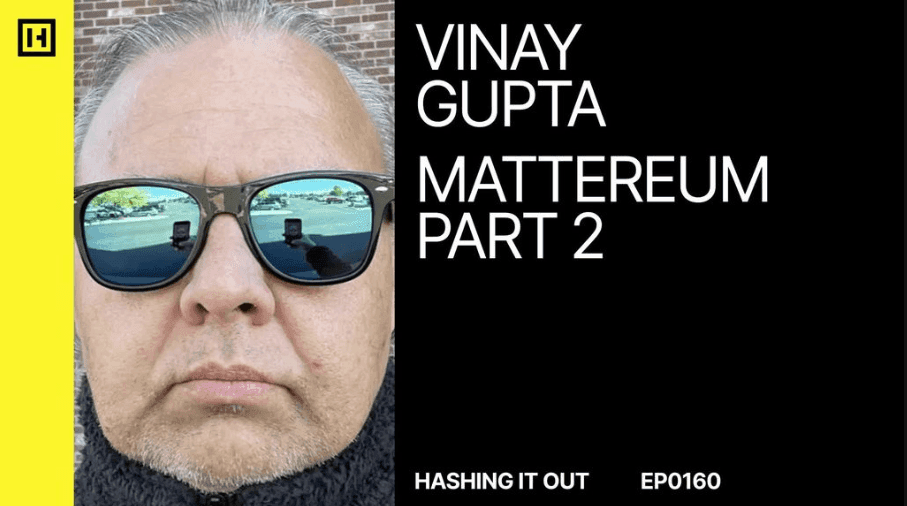

Vinay Gupta | Mattereum: Part 2
In Mattereum Part 2, Vinay Gupta - CEO of Mattereum, discussed the complexities of establishing legal ownership and property rights for physical and digital assets, emphasising the societal and legal constructs surrounding property.
He highlighted the work Mattereum does to tokenise real-world assets like gold bars and houses, ensuring that ownership can be legally verified and transferred through NFTs and smart contracts. The conversation also touched on unconventional forms of property like in-game items, which may be owned by companies rather than players, suggesting the need for clarification and potential insurance mechanisms.
Fergulati
We're back for part two. If you just finished listening to part one, then you're probably really excited about what you're about to hear in part two. The conversation just got so riveting, we felt like, hey, we need to do back to backs here. So Doctor Vinay Gupta is back. Welcome back.
Vinay Gupta
Yeah, or interestingly enough, I don't even have an undergrad degree. I am just plain old Vinayay.
Fergulati
Really.
Episode hosts - Demetrick Fergurson, Corey Petty, Jessie Santiago
Produced by - Christian Noguera
Edited by - Joe Siebert